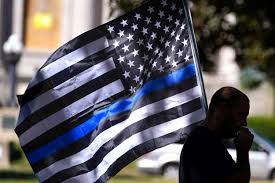The Importance of Self-Care for Law Enforcement Officers
Matthew S. Paradis
It is no secret that law enforcement officers are repeatedly exposed to stress and trauma throughout their careers. The cumulative stress and/or PTSD can wreak havoc on the overall health of an officer, especially if left unmanaged. Police officers generally experience higher rates of depression, PTSD, burnout, and anxiety when compared to the general population (NAMI). They also commit suicide 54% more than the general population (Violanti, 2020). This number is exacerbated when considering small departments, as this rate increases to over three times the national average” (NAMI).
There are many contributing factors to these statistics and yet despite knowing the statistics, the underlying problems persist. Police officers are tasked with solving or addressing many societal problems and yet they are hesitant to address their own. Barriers exist that discourage or prevent officers from seeking out help, even if they recognize that they are having difficulties with PTSD or some form of mental illness. More importantly, there is a stigma surrounding officers and emotional and/or psychiatric conditions, such as fear of losing their job, having their ability to carry a firearm taken away, reassignment to a less “stressful” position, and being labeled as weak and eliciting ridicule, humiliation, and retaliation from fellow officers or administration (Rousseau, Module 6).
In light of the ominous statistics previously discussed, there are viable options to help address the underlying issues at hand, mainly in the form of self-care. While officers are hesitant to seek assistance, exercising various forms of self-care can be incredibly beneficial to an officer’s overall health and well-being. Simplistically, officers should do their best to get adequate sleep, exercise regularly, eat well, do their best to relax, and connect with those who they have meaningful relationships with, particularly significant others. These areas need to be prioritized by officers who wish to continue to enjoy their lives and their careers rather than just going through the motions. These things must be done with purpose and in doing so, officers may find themselves in a better position to serve others to the best of their ability.
When the oxygen masks come down in an airplane during an in-flight emergency, flight attendants advised passengers to take care of themselves first before taking care of others. This same principle holds true with police officers prioritizing their own health (Cordico). Whether it be yoga or some other type of physical exercise, practicing mindfulness, journaling, finding a hobby, speaking with a mental health professional or peer support, or some combination of these strategies or others, police officers need to champion their own health and in doing so, they will be better suited and equipped to effective manage what the job will throw at them and be in a position to serve their families and communities to their best of their abilities. Self-care can provide a sense of personal control in an otherwise chaotic world, allowing us to pursue meaningful endeavors and engage in healthy lifestyle choices, supporting personal growth and furthering our resilience to the stress and trauma inherent in policing (Rousseau, Module 1).
Greco, N. (2022, March 4). The importance of self-care for law enforcement. Cordico. https://www.cordico.com/2021/05/21/take-care-of-yourself-why-law-enforcement-officers-need-self-care/
National Alliance on Mental Illness. (2023). Law enforcement. NAMI. https://www.nami.org/Advocacy/Crisis-Intervention/Law-Enforcement
Rousseau, D. (2023). Module 1 – Introduction to Trauma. MET CJ720. Boston University.
Rousseau, D. (2023). Module 6 – Trauma and the Criminal Justice System. MET CJ720. Boston University.
Violanti JM, Steege A. Law enforcement worker suicide: an updated national assessment. Policing. 2021;44(1):18-31. doi: 10.1108/PIJPSM-09-2019-0157. Epub 2020 Oct 21. PMID: 33883970; PMCID: PMC8056254.

One comment
Hi Mathew,
I found your post to be very interesting. I had no idea the statistics regarding police officers experiencing depression, PTSD, burnout, anxiety, and committing suicide. The point you made about their being stigma surrounding police officers and emotional/psychological conditions is unfortunately so common for more than just people in that field. The expectation surrounding police officers needing to be “tough” makes that stigma even larger I’m sure. I appreciated the self care strategies you mentioned at the end that could possibly be implemented in their lives. Maybe a program in the police department could be helpful as well.
Comments are closed.